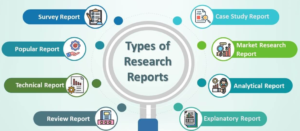Th Research Clerk Agency can provide invaluable support for Power & Energy Research by offering specialized services tailored to the needs of the industry:
Market Analysis: Research clerks can conduct comprehensive market analysis for the power and energy sector, including electricity generation, transmission, distribution, and consumption. They can gather data on energy prices, demand trends, regulatory policies, and technological advancements. By analyzing market dynamics, research clerks help energy companies, utilities, and policymakers identify opportunities for growth and investment.
Renewable Energy Research: With the increasing focus on renewable energy sources such as solar, wind, and hydroelectric power, research clerks can track developments in renewable energy technologies, project financing, and policy incentives. They can gather data on renewable energy capacity, generation costs, and market trends to assess the viability of renewable energy projects and support decision-making processes.
Energy Efficiency Studies: Research clerks can assist in conducting energy efficiency studies to identify opportunities for reducing energy consumption and improving resource utilization. This may involve analyzing building energy performance, industrial processes, transportation systems, and appliance efficiency standards. By identifying energy-saving measures, research clerks help businesses and organizations reduce operating costs and environmental impacts.
Policy and Regulatory Analysis: Research clerks can monitor and analyze energy policies, regulations, and incentives at the local, national, and international levels. They can track legislative developments, regulatory changes, and government initiatives related to energy production, distribution, and environmental sustainability. This information helps energy companies, utilities, and policymakers navigate regulatory compliance and strategic planning efforts.
Technology Assessment: Research clerks can evaluate emerging technologies in the power and energy sector, such as smart grids, energy storage systems, and electric vehicles. They can assess the technical feasibility, cost-effectiveness, and market potential of new technologies through literature reviews, case studies, and expert interviews. This information enables industry stakeholders to make informed decisions about technology adoption and investment.
Risk Management: Energy projects often face various risks, including geopolitical instability, market volatility, and environmental concerns. Research clerks can assist in identifying and mitigating risks through risk assessment studies, scenario analysis, and contingency planning. By evaluating potential risks and developing risk management strategies, research clerks help energy companies and investors safeguard their investments and achieve project objectives.
Market Intelligence Reports: Research clerks can compile market intelligence reports tailored to the needs of energy industry professionals. These reports may include insights on market trends, competitor analysis, investment opportunities, and regulatory updates. By providing timely and relevant market intelligence, research clerks empower energy companies, investors, and policymakers to make informed decisions and stay ahead of the competition.
The Research Clerk Agency, stakeholders in the power and energy sector can access comprehensive research support to address challenges, capitalize on opportunities, and drive innovation in a rapidly evolving industry landscape.










